My definition of hunting and angling literature is broad. I believe that hunting and angling — our last tether to the hunter/gatherers we are at heart — are the most “human” of activities. They were the foundation for the first human cultures and, even in our corporate-agrarian food system, still influence so much of who we are both directly and indirectly. So books that dive into those ancient blood ties we share with other animals and the landscape itself are fascinating to me. They offer insight into the human condition and often provide a rough map to what I think is a better way.
And, as a bit of an iconoclast, that they undermine current cultural ideals and arbitrary truths we take as gospel is just the cherry on top.
I’m not sure how I found David Abram, but I’m glad I did. Adding his book, The Spell of the Sensuous, to my canon of subversive literature has added fathoms of depth to my understanding of the human story. That story being, how one species of great ape managed to construct both tangible and abstract barriers between themselves and the organic, more than human world from which they came and are still inextricably linked. The separation has damaged our mental, emotional, and physical health. That it has also damaged the biosphere and placed in peril billions of other living things, besides ourselves, is also indisputable. But discovering the “how” and “why” it happened is the first step toward reconciliation with our animal selves, with our fellow living beings, and with the earthly elementals responsible for the evolution of all of us.
Abram makes the case for a surprising culprit in this forgetting of who we are. His book is an indictment of the written word.
Yes, this is a book claiming that the written word is responsible for all the shit we’re dealing with now. The irony appears to be so thick that you could walk on it, but don’t pass judgment just yet. Abram makes a strong case that the primary reason we’ve lost touch with the natural world is because we exchanged an oral tradition with languages based on nature for abstract sounds and symbols that mean nothing outside of our societal constructs.
Abram’s argument is that more than two million years of evolution within a living landscape meant that “our bodies formed themselves in delicate reciprocity with the manifold textures, sounds, and shapes of an animate world.” To help drive his point, Abram points to remnants of our sensory-informed communication such as bird voices that are directly or derivatively responsible for the common name of that bird. Some that come to mind immediately to me are bobwhite and whip-poor-will. But Abram offers several examples among indigenous tribes wherein the names are very nearly whistled, warbled and sung like the song of the bird itself. But it’s not just bird names. Onomatopoeic verbs such as “sizzle,” “gurgle,” and “boom” pepper our modern language and are understood globally because of their origins in the very sounds those words represent. But Abram digs even deeper.
The living landscape within which hunter/gatherer lives were encompassed fostered living forms of communication — word and song served as a conduit alive with the energy of a place, transferring the experiences of one person to other individuals and even onto other generations with a glowing expression of the life force that permeated the planet. Abram claims that oral communication is a living form of communication as opposed to the static permanence of the written word. He pulls mountains of evidence from myriad sources including: The true definition of what an Australian Aboriginal walk-about signifies, a sliver of understanding gained by a glimpse into the relationship of indigenous people with the land they inhabit, and the melding of time and space into the eternal “now.”
I had no idea that this book would reach so far into the spiritual and metaphysical aspects of speech, but such is the power of the spoken word. From indigenous oral storytelling that makes no sense without a sense of place to the Hebrew aleph-beth with its distinct lack of vowels for likely mystical reasons (vowels are the sounds of Air, the voice of God?), Abram’s research points to some hard truths and likely implications.
“Only as the written text began to speak would the voices of the forest, and of the river begin to fade. And only then would language loosen its ancient association with invisible breath, the spirit sever itself from the wind, the psyche dissociate itself from the environing air.” ~ D.A.
A complex, nuanced read, The Spell of the Sensuous is a whirlwind of anthropology, philosophy, phenomenology that requires focus and is sure to challenge the reader’s notions on at least a few topics. Yours truly, an acknowledged open-minded subversive, had to reread and then check other sources in order to swallow some of Abram’s more radical assertions. But they held water. Even the author’s admitted speculations were arrived at by logical reasoning informed by related facts.
Abram also offers a plea, as I do myself, not to return to what once was, but to come full circle as humans.
“Yet it would be a perilous mistake for any reader to conclude from these pages that he or she should simply relinquish the written word. Indeed, the story sketched out herein suggests that the written word carries a pivotal magic — the same magic that once sparkled for us in the eyes on an owl and the glide of an otter.” ~ D.A.
The Earth has never stopped communicating with us, but many have forgotten how to pay attention. Abram’s book is an invitation to listen, touch, taste, see, and feel the world around us with senses forged through evolutionary forces.
As a writer, I also find it an inspiration to summon that magic of the written word in crafting stories that fairly burst with hot breath, blood, sunlight, and river water.




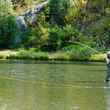
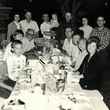

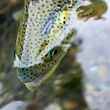
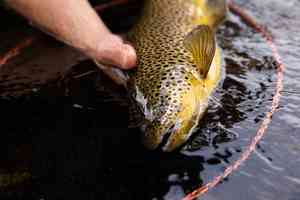


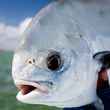
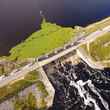
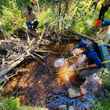






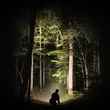



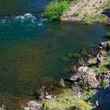
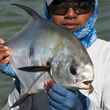


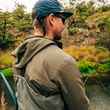
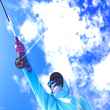

Comments